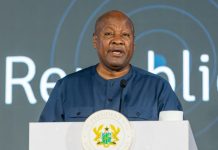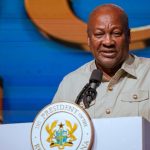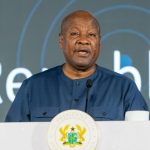Edudzi Tamakloe, the Acting Chief Executive Officer of the National Petroleum Authority (NPA), has assumed leadership at a crucial time with concerns about potential fuel shortages.
A key priority for Tamakloe is ensuring a steady nationwide fuel supply, as fluctuations in fuel prices have significant implications for businesses and the economy at large.

In response to logistical disruptions affecting fuel delivery, especially in the Northern regions, the NPA has rolled out new measures. These include granting Oil Marketing Companies (OMCs) special authorization to source fuel from the Bulk Energy Storage and Transportation Company (BOST) depot in Kumasi, which will help ensure a reliable supply to the five northern regions.
As fuel prices, with petrol and diesel approaching GH₵16 per litre, continue to rise, concerns over affordability are growing among both the public and businesses.
The key challenge for Acting NPA CEO Edudzi Tamakloe will be navigating the mounting pressure of these price hikes, with questions remaining over whether he will collaborate with the government to adopt measures such as suspending certain petroleum product margins—a tactic used in the past to reduce costs.
Industry stakeholders, including the Africa Centre for Energy Policy (ACEP), have voiced concerns about the levies and margins imposed on petroleum products. Kodzo Yaotse, Policy Lead for Petroleum and Conventional Energy at ACEP, has criticized these margins, calling them harmful to consumers.
“We don’t want NPA to be receiving any margins. We are asking that those margins be converted to tax handles within the control of the government so that those revenues accrue to the government for development purposes. NPA is already paid to do its work. Implicit in the cost of the product, there’s money for it to do its work,” Yaotse emphasized.
He further emphasised: “So we don’t want NPA to be in the business of collecting money for transportation or for any other purpose related to the product. No, it should focus on ensuring that there is enough product in the country and that the quality of the product can be guaranteed.”
Another key issue for the acting NPA boss is the 2024 Petroleum Products Pricing Guidelines.
These guidelines set a price floor below which OMCs cannot sell their products – a policy that has drawn criticism from energy sector think tanks.
The Chamber of Petroleum Consumers has suggested introducing a price ceiling alongside the price floor to balance market deregulation with consumer protection.
As Edudzi Tamakloe steps into his role, the path forward will demand bold decisions to stabilise supply, address pricing concerns and build confidence in Ghana’s petroleum sector.





















































![[FREE FREE MONEY] Predict and Win a Guaranteed GH¢200 From Us EVERY WEEK](https://wordpress.ghanatalksradio.com/wp-content/uploads/2022/02/Predict-and-Win-Final-09-03-2021-218x150.jpg)
![[Predict & Win – 8th/Oct.] WIN A Guaranteed ¢200 From Us This Week](https://wordpress.ghanatalksradio.com/wp-content/uploads/2021/10/maxresdefault-16-218x150.jpg)
![[Predict & Win – 2nd] WIN A Guaranteed ¢200 From Us This Week](https://wordpress.ghanatalksradio.com/wp-content/uploads/2021/09/maxresdefault-50-218x150.jpg)
![[Predict & Win – 25th] WIN A Guaranteed ¢200 From Us This Week](https://wordpress.ghanatalksradio.com/wp-content/uploads/2021/09/maxresdefault-36-218x150.jpg)
![[Predict & Win – 18th] WIN A Guaranteed ¢200 From Us This Week](https://wordpress.ghanatalksradio.com/wp-content/uploads/2021/09/maxresdefault-23-218x150.jpg)









![[National cathedral] See full list of churches that have contributed since 2018](https://wordpress.ghanatalksradio.com/wp-content/uploads/2020/09/Ghana-National-Cathedral-GhanaTalksRadio-100x70.jpg)



